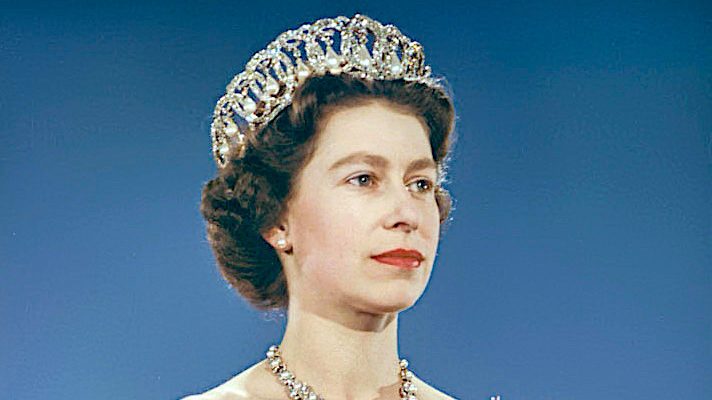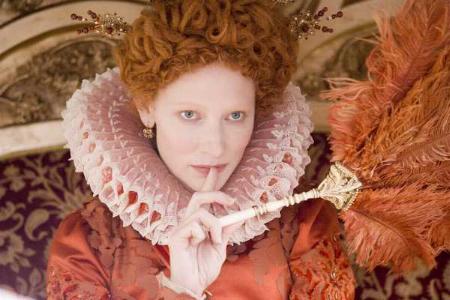Journalist Robert Lacey returns to one of his most famous subjects, Elizabeth II; he discusses her unique contributions to the monarchy, the future of British royals, and why a queen is worth a pint of milk a year.
Question: How has Queen Elizabeth II changed the role of the British monarch?
Robert Lacey: I don’t think anybody would have said, it’s more than 50 years ago now when Elizabeth the II came to the throne, that the Monarchy would still be around in the twenty-first century and in many ways be more beloved and more popular than politicians. I mean we’re going through a particular stage at the moment in Britain of distaste and cynicism about our political system and our political class and the corruption that’s been unveiled there at every level and suddenly this simple woman, Elizabeth II I mean living in all the splendor of the royal palaces, but these don’t belong to her and actually costing us very little money indeed. You wouldn’t have thought as I say, 50 years ago that she would have become a sort of icon for people. “Oh, good old Queen.” “You can always trust her.” Every year they release their budgets. They don’t release how much security costs, but the Monarchy still costs us all in England, Britain less than a liter of milk every year. This is not every day or every week. It’s less. It’s about 70p. What’s that? That’s about 60, 70 cents. It’s less than a pound the Monarchy costs and I think people feel in this age in which you know who would have thought that Britain would still be fighting wars in the twenty-first century. The royal family are very inspiring for the military element of life and this woman has done it by avoiding the tricks of celebrity and by modesty and service and she likes the gin and tonic, but you know that’s about the worst vice anybody has been able to discover about her.
Question: How will the monarchy change after Elizabeth II’s reign?
Robert Lacey: Monarchies are only as good as people doing the job. I mean at the moment I am in particular studying the Saudi Monarchy and there King Abdullah is doing the job very well in the opinion of most people, trying to bring in reform. And Elizabeth II in Britain has also been a monarch whose quiet example of hard work has struck a chord with people, but you know if the British monarchy were to produce another Edward VIII and by that I’m referring to the king who in 1935, 1936 conducted a love affair with Mrs. Simpson, an American divorcee, shocked Britain and abdicated and if he hadn’t abdicated he would have been forced to abdicate. Now if the Monarchy were to produce someone else like that then I can see Britain saying well, let’s get rid of it.
In fact, the queen’s heir, next in line is this curious, rather wonderful figure of Prince Charles famous for producing chocolate biscuits and campaigning. I mean this was a man who talked to his plants and got worried about CO2 in the atmosphere when every other person of his generation was driving sports cars and smoking cigarettes and he seemed totally out of keeping and out of sync and he is an example of a different sort of royal. He got involved in scandals. Many people felt he mistreated the glamorous Diana, Princess of Wales, but that is now behind him and as we speak this is a man who is trying to raise consciousness about the world’s rain forests, trying to persuade the developed countries to stop the destruction of the rain forest and is thoroughly plugged in, in the age of 60 to all the concerns of people much younger than him, so in his way he is… He is likely to keep the Monarchy going and popular. Having said that you know the Monarchy is part of the British class system. The Monarchy is part of the British past and the British nostalgia for the past, which holds us back, so I’m not saying it’s an unmixed blessing, but I’m saying that it’s managed to find and emphasize the positive side and actually make a contribution to British life and just to go back to this issue of the corruption. People say well thank God there is some people in public life who are not you know… who are trying to keep to higher standards. I mean the monarchy in Britain is sort of like a religion. Less and less people go to church these days, but people will still go and cheer outside Buckingham Palace and of course there is the sheer pageantry of it. You know the cynics would say Britain shouldn’t get rid of the Monarchy because if we do we’ll lose our tourist trade. Who is going to come and look at Buckingham? I mean people still go and look at the palaces in France, but they’re not so much fun without real royal people living in them and the idea that when you look at Buckingham Palace you can think there is the queen in there. Which is her window? Is she looking out at me? That’s all part of the strange mystique of the monarchy.





